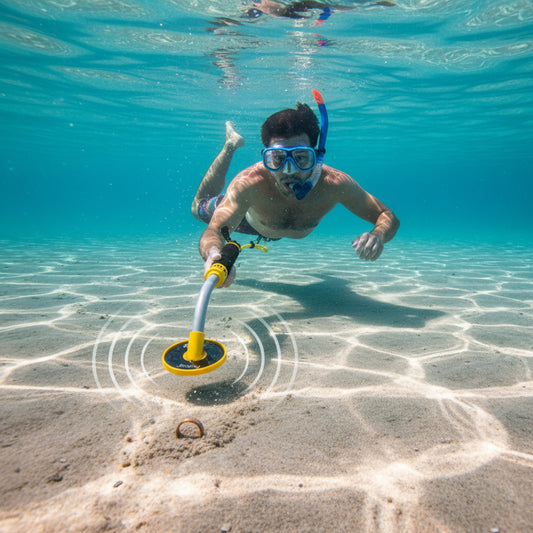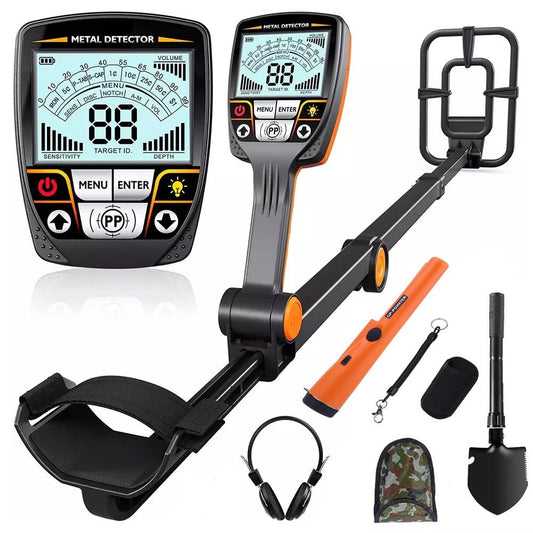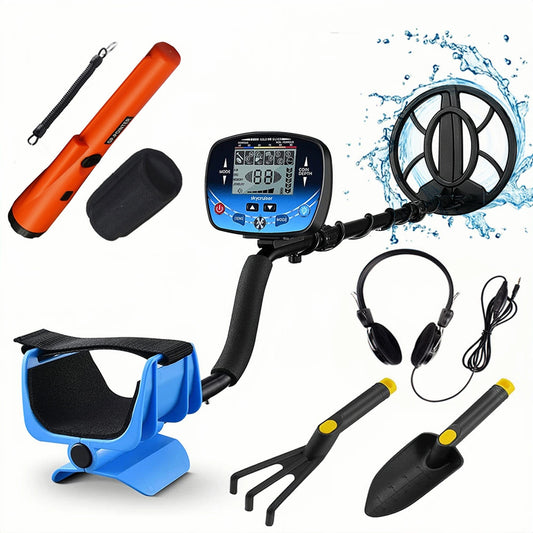
Metal Detecting in Texas: A Comprehensive Guide
Share
Metal detecting in Texas offers a unique blend of history, adventure, and potential for exciting discoveries. From the Gulf Coast beaches to the vast ranchlands and historic sites, Texas provides a diverse landscape for treasure hunters.
This comprehensive guide will explore everything you need to know about metal detecting in Texas, including laws, top locations, and essential tips for a successful hunt.
Introduction to Metal Detecting in Texas
Texas, with its rich history and expansive terrain, is a paradise for metal detecting enthusiasts. Whether you're searching for lost coins, historical artifacts, or simply enjoying the thrill of the hunt, Texas has something to offer every detectorist.
Brief History of Metal Detecting in Texas
Texas has a long history of human habitation, from Native American tribes to Spanish explorers and early settlers. This rich cultural heritage means that metal detecting in Texas can yield a wide range of fascinating finds.
Laws and Regulations for Metal Detecting in Texas

Before you start detecting, it's crucial to understand the legal framework:
-
General Rules: Metal detecting is generally allowed on public lands, but always check local regulations.
-
State Parks: Some Texas state parks permit metal detecting with restrictions; check with park authorities.
-
Private Property: Always obtain permission from landowners before detecting on private land.
-
Historical Sites: Detecting on protected historical sites is often prohibited without special permits.
Learn more about metal detecting laws in texas.
Best Locations for Metal Detecting in Texas

Texas offers a variety of exciting locations for metal detecting:
-
Beaches: The Gulf Coast beaches are popular for finding lost jewelry and coins.
-
State Parks: Many parks allow detecting, offering opportunities for historical finds.
-
Historical Sites: Areas like the Alamo and other battlefields can be rich in artifacts.
-
Rivers and Lakes: Potential for finding items lost by swimmers or boaters.
Discover the best places to go metal detecting in texas.
Essential Equipment for Metal Detecting in Texas

To successfully detect in Texas, consider the following gear:
-
Versatile Metal Detector: Suitable for various terrains and conditions.
-
Waterproof Detector: For beach and water detecting.
-
Pinpointer: Helps locate small objects in dense vegetation.
-
Digging Tools: A sturdy trowel or small shovel for easy digging.
-
Sun Protection: Hat, sunscreen, and sunglasses for outdoor comfort.
Tips for Successful Metal Detecting in Texas
To maximize your success when metal detecting in Texas:
-
Research Historical Maps: Identify areas with historical significance.
-
Join a Local Club: Connect with experienced detectorists for tips and permissions.
-
Adjust Detector Settings: For optimal performance in different terrains.
-
Respect the Environment: Fill in holes and remove trash you find.
Potential Finds When Metal Detecting in Texas

Texas's diverse history means detectorists might uncover:
-
Spanish Coins: From early explorers.
-
Civil War Relics: Artifacts from battles and camps.
-
Native American Artifacts: Tools, jewelry, and other historical items.
-
Modern Lost Items: Jewelry, coins, and personal belongings.
Safety Considerations for Metal Detecting in Texas
Safety should always be a top priority when detecting in Texas:
-
Watch for Wildlife: Be aware of snakes, spiders, and other wildlife.
-
Stay Hydrated: Bring plenty of water, especially in hot weather.
-
Be Aware of Weather: Avoid detecting during thunderstorms.
-
Respect Private Property: Always obtain permission before detecting on private land.
The Future of Metal Detecting in Texas
As we look towards 2025 and beyond, several factors are shaping the future of metal detecting in Texas:
-
Technological Advancements: Improved detectors with better discrimination and depth capabilities.
-
Community Engagement: Growing partnerships between detectorists and local historical societies.
-
Environmental Focus: Increased emphasis on responsible detecting practices to preserve Texas's natural beauty.
Conclusion: Embracing the Adventure of Metal Detecting in Texas
Metal detecting in Texas offers a thrilling adventure for those willing to explore its rich history and diverse landscapes. By understanding the laws, choosing the right equipment, and practicing responsible detecting, you can enjoy this exciting hobby while contributing positively to your community.
Whether you're searching for historical artifacts, lost treasures, or simply enjoying the great outdoors, Texas provides endless opportunities for metal detecting enthusiasts. So grab your detector, do your research, and set out to explore the hidden treasures of the Lone Star State. Who knows what piece of Texas history you might uncover in your next dig?
Happy hunting, and may your Texas adventures be filled with excitement and discovery!




